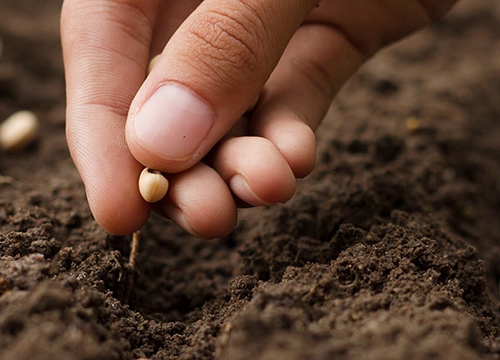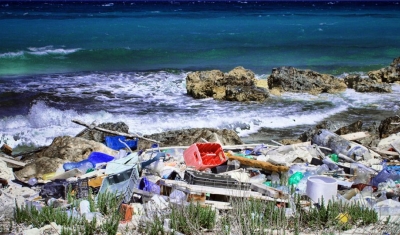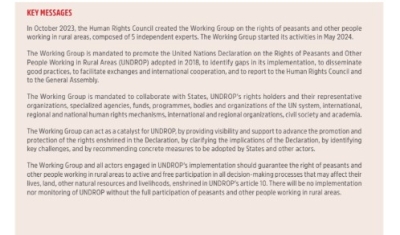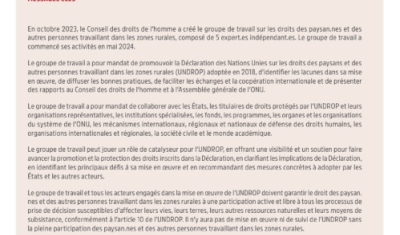Online Workshop on the Proposed New EU Regulation on the Production and Marketing of Seeds and other Plant Reproductive Material
Event


Adobe Stock
This online workshop on the current status of the negotiations on the proposed new Plant Reproductive Material (PRM) regulation is co-hosted by Arche Noah, the Geneva Academy of International Humanitarian Law and Human Rights, and theEuropean Coordination Let’s Liberate Diversity. It aims to provide cultivated plant diversity actors and peasant organisations with information on the current state of the political process, and to foster effective action and collaboration by these actors to advocate for a regulation that protects and promotes diversity and the implementation of the right to food and the right to seeds recognised in the United Nations Declaration on the Rights of Peasants and Other People Working in Rural Areas (UNDROP).
At this occasion, a new Commentary on the PRM Reform from the Perspective of the Right to Food, the Right to Seeds and UNDROP will be presented by the Geneva Academy.
The workshop will entail a mixture of presentations and discussions in plenary and break out groups. There will be translation provided from English to French and German.
It is possible to attend the Thursday afternoon and not the Friday morning session, but not the other way around (as the presentations on Thursday will be the basis for the group work on Friday).
Please register here by 11 October 2024.
This workshop and the translation are possible thanks to the kind financial support of the Software AG Stiftung, the Geneva Academy of International Humanitarian Law and Human Rights, ProSpecieRara, and the European Union as part of the Erasmus+ project DiverSeedPaths.
If you have any questions, please contact: This email address is being protected from spambots. You need JavaScript enabled to view it.







